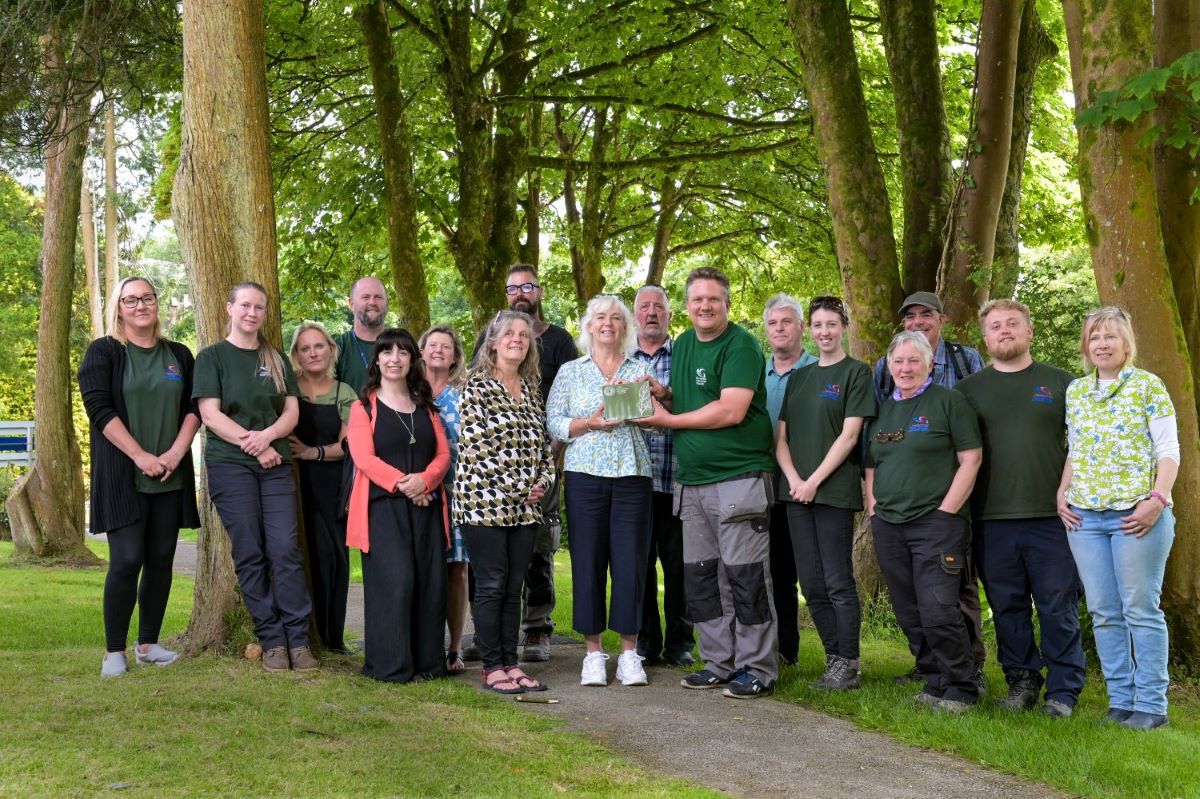Apprenticeships: a key part of the pathway to delivering our net zero ambitions

As the country marks National Apprenticeship Week, Tracey Smyth, Head of People Services and Talent for Stagecoach, Britain’s biggest bus operator, explains the benefits of investing in the sector’s future workforce – and its role in ensuring a greener future.
Over the next decade or so, there will be a fundamental change in the fleet of vehicles that deliver the UK’s bus networks. It’s part of an acceleration of the technological transformation that has seen “dirty diesel” already replaced by cleaner diesel engines and a further transition now underway to zero emission buses.
Stagecoach has set an ambitious target to deliver a 100% Zero Emission UK bus fleet by 2035. This year, the company is planning to increase its electric bus fleet by over 80% as it continues its journey towards being a net zero business. As part of these plans, Stagecoach will be increasing its electric bus fleet from 184 buses to 343 and just last week launched the first all-electric city bus networks in the UK in Inverness.
These new electric bus networks need dedicated charging infrastructure – as well as a team of skilled technicians to service the fleet and keep the vehicles running smoothly. Diesel and electric technologies are dramatically different and the skills they need are different. That is why investment in training and apprenticeships to deliver the green engineers of the future are so important.
This transition is also a huge opportunity for the bus sector to attract new talent to the opportunity of working on innovative, cutting-edge technology, providing secure, highly-skilled and sustainable employment.
Apprenticeships have been a core part of Stagecoach’s approach to employee training and development for more than 20 years. We have over 1,400 apprentices in our business and we hope to see this number continue to grow.
Stagecoach offers an industry-leading engineering apprenticeship programme, we were the first public transport operator to offer a flagship driver apprenticeship scheme, and we have also recently relaunched our graduate recruitment initiative.
Apprenticeships are key for our continued success, productivity and ultimately helping ensure the UK economy has the skills it needs to grow. They are part of our tailored approach to training that gives our people a suite of development opportunities as they progress in their careers with us. Several of our senior leaders, including Managing Directors, started with us as drivers and an apprenticeship with Stagecoach gives our people the key skills and understanding of our core business, which is so vital to our local communities.
Local communities themselves can also benefit from our apprenticeship schemes. We provide employment in the local areas we serve, increasing the number of skilled workers in our towns and cities. We also ensure we have a strong workforce who are proud to deliver services to connect local people with their loved ones, jobs and vital services.
Last year, we were proud to be ranked as one of the country’s top 100 apprenticeship employers by the Department for Education, leading the transport sector on the number of new starts. We’ve been recognised by Rate my Apprenticeship, the UK’s leading job resource for young people seeking apprenticeships, as well as being awarded Gold Membership with the 5% Club, a UK-wide charity that aims to contribute to the alleviation of poverty through increased levels of employment, with 5% of our employees in ‘earn and learn’ positions.
This year, the theme of National Apprenticeship Week is ‘Skills for Life’. Unlike other apprenticeship schemes that are only targeted towards school leavers, we pride ourselves on the diverse age and background of our apprentices. Ralph Turtle, a 65-year-old driver at Worthing, completed his apprenticeship in 2021 having previously been a Flybe pilot, giving him a new phase in his career in the transport industry.
James Rostill is among those to benefit from our engineering apprenticeships, and he completed his apprenticeship in our East Midlands business last year. His advice was simple: “Just go for it!”. James, who achieved a distinction grade after finishing his final exams, said the more apprentices put into their training, the more they get out. “Remember who you are doing the apprenticeship for – it’s about your skills, your knowledge, and your career.”
Coral Tilson from Manchester, who completed her driver apprenticeship in 2021, echoed that advice. “Take in as much information as possible and use every new day to your own advantage as you can make what you want of your experience. The skills you can gain from these apprenticeships are limitless,” she said.
Stagecoach has teamed up with leading UK training provider Realise for its driver apprenticeship programme. Kairon Flowers, Head of Transport at Realise, said: “It’s an innovative programme and we have tailored the curriculum entirely to suit Stagecoach’s vision and business requirements.
“The first part of the apprenticeship programme is qualifying to drive a bus. We then support and nurture drivers through the early stages of their new role, providing them with the skills required to forge a long-term career in the industry, everything from engaging with customers to taking care of their own wellbeing.”
Last year, a ground-breaking report by Stagecoach – Road map to zero – found that more than one million new passengers could be attracted to use the UK’s bus networks through the switch to zero emission buses. It will require a new approach to skills and training, including awarding bodies working closely with the bus industry to develop a comprehensive syllabus that responds to the changing needs of operators.
This gives the bus sector the opportunity to take a more active approach to engaging with schools and colleges, encouraging young people into a sector at the forefront of technology, innovation and green jobs – and changing perceptions of buses.
It is a hugely exciting time for the bus sector, with massive opportunities for the people that work in it, and apprenticeships will be a critical pathway to making our net zero ambitions a reality.










Responses